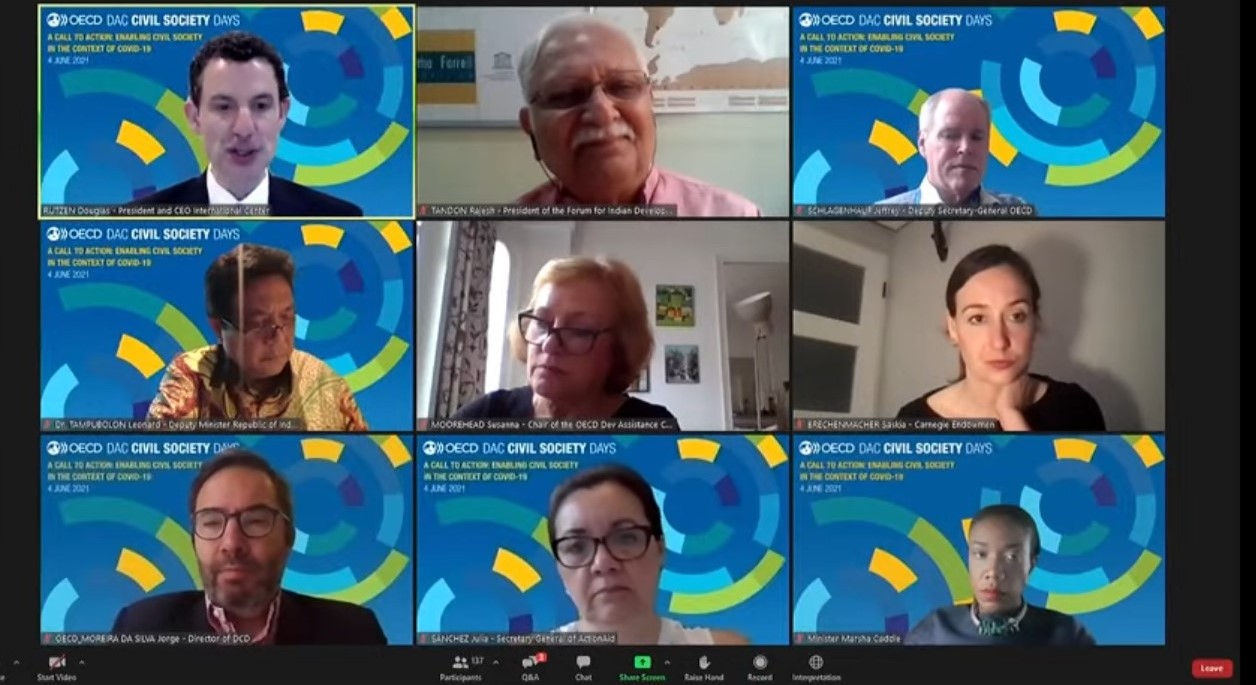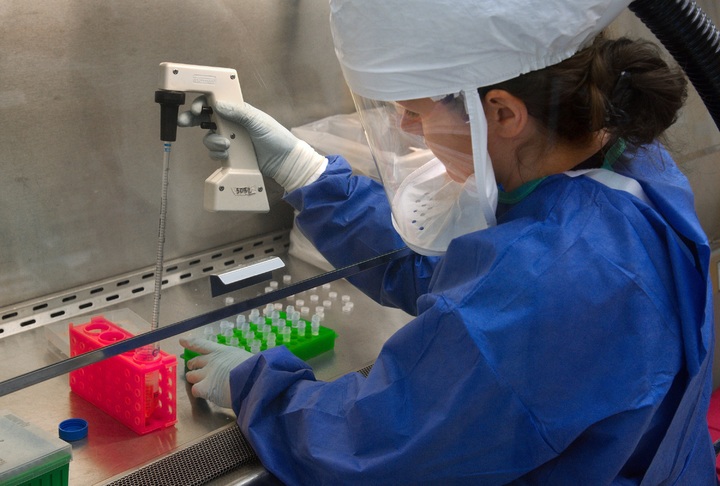“Civil society has acted as a bulwark at the global, regional, local and community levels providing incalculable assistance notably in the provision of essential health and social care services."
In a Global Call to Action dialogue for resilient recovery from pandemic last week, Jeffrey Schlagenhauf, Deputy Secretary-General of OECD made the above opening remarks. In his keynote address, His Excellency Leonard Tampubolon, Deputy Minister for Development Funding, Ministry of National Development Planning (BAPPENAS), Republic of Indonesia, explained approach of his government during COVID in these words: “The government of Indonesia worked by engaging civil society and media especially in the promotion and prevention efforts to increase health literacy and encourage behaviour change in commodities to combat the COVID-19.”

In this dialogue with public officials and civil society, many examples of rapid, inclusive and caring responses provided by civil society were shared from around the world. Around the world, as in India, local community actions proved most effective in prevention and care. Civil society staff, animators, volunteers and community leaders mobilised immediate relief to workers and their families who had lost livelihood. Support to millions of migrant families, comprising of ration, medicines and transportation, was provided by civil society in many countries, including India. Civil society supported frontline health workers with PPE/masks/sanitisers as well as enabling their outreach to households in distress. Several thousand civil society volunteers mobilised food, oxygen and access to health care around the country during the second wave of COVID infections past three months. NITI Aayog and PMO acknowledged this support from civil society last year, and just recently again. Susanna Moorehead, Chairperson, DAC of OECD, put it succinctly during the dialogue: “COVID-19 has disproportionately affected poor people and it has driven up inequality and the long-term effects of COVID will hit the very poorest people in countries the hardest and that is why the voice of civil society organizations is so important now”.
The particular value-added of civil society actions during the past fifteen months of the pandemic has illustrated several niche contributions. First, civil society is first mover, agile, flexible and immediate. Second, it focuses on the most vulnerable, poor and marginalised households and communities. Third, it maintains a wide lens of attention to issues being faced by adolescent girls, orphaned children, persons with disability and tribal communities. Fourth, its attention to increased discrimination during such a disaster makes it sensitive to issues like increased violence against women and forced early marriages of girls. Fifth, it is able to mobilise additional contributions, donations, volunteers and assistance to complement government’s responses. Recognising these universal niche contributions of civil society during COVID, the Deputy Minister of Foreign Affairs, Czech Republic, Martin Tlapa remarked: “Civil society is the voice of inequality in the country for us. It is a voice for building trust. If we are able to accommodate the voice of civil society in the government, it’s definitely something which is building a trust. Trust is what we are missing now in the global world”. In reaching out to the most vulnerable communities and households, civil society also brings feedback to government agencies and officials so that better access to relief and health care could reach them, especially in communities away from the metro cities. When such feedback shows inadequacies of public health infrastructure and weaknesses in the delivery of relief and benefits, then political leaders and officials do not like civil society. Information of inadequacies in public domain is considered unacceptable and attempts to ‘mute’ them are widespread.

In holding public institutions and governments accountable for ensuring equitable access to relief and health care to all citizens during the pandemic, civil society around the world has demonstrated its value-addition. An official put it succinctly during the dialogue: “Civil society has endeavoured to hold governments to account calling for robust, equitable and transparent responses to the pandemic.” Yet, it is this very contribution of civil society which invites harassment, antagonism and undermining of those who share relevant information for making governance of the pandemic transparent and accountable. The phenomenon is global; in 2020, civic space was further restricted and suppressed in more than 100 countries worldwide. Articulating these concerns during the dialogue, Jorge Moreira da Silva, Director, Development Cooperation Directorate of OECD said: “Fundamental freedoms are at risk in context where individuals do not have access to digital technologies, new forms of exclusion are proliferating the spread of misinformation and disinformation and anti-civil society smear campaigns online and offline are being used to repress civil society”. The dialogue recognised that civil society staff, animators, volunteers and community leaders are also frontline workers who continue to risk their lives in providing relief and care to vulnerable households during the pandemic. They need not just masks and sanitisers; they need institutionalised mechanisms of recognition and support as frontline workers in relief and reconstruction during and from the pandemic. A global call to action, which enables civil society to make its fullest contributions at this juncture, in partnership with governments, requires:
How can responses to this global call for action be mobilised?
PRIA’s MobiliseHER team traveled to Bangalore during the week of June, 10 – 14, 2024. The aim of the visit was to gain relevant insights into the civil society ecosystem in Bangalore and meet different organisations to understand the city through a lens of gender and inclusive mobility.
Working at PRIA, often leads us to various cities across the country. Each trip is an opportunity to witness firsthand the challenges and triumphs of different communities.
Mr. Yedukrishnan V has recently joined PRIA after gaining valuable experience in the development sector. Drawing from his journey in the social sector and personal encounters in Kerala, he emphasises the importance of participatory governance and research in empowering marginalised communities.'